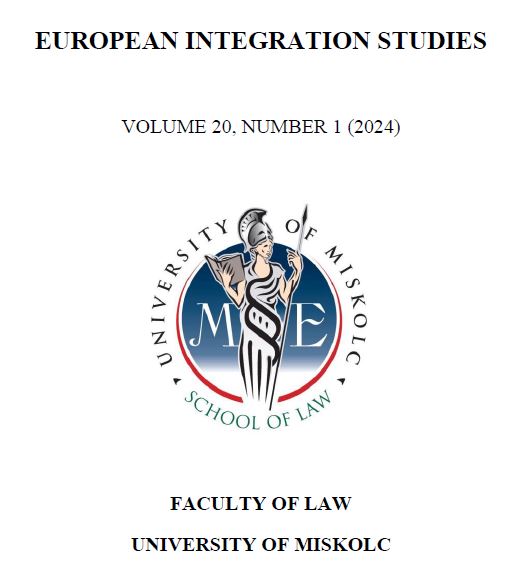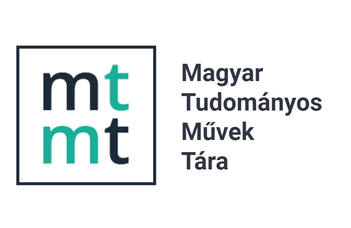Our right to life comes from being human: Perception of the child before birth
DOI:
https://doi.org/10.46941/2024.1.2Schlagworte:
abortion, unborn, conception, motherhood, beginning of life, human being.Abstract
More than 70 million abortions take place worldwide every year. There is no other topic so devisive today as the recognition of the human being as human while in the mother's womb. And there is no other issue where the world of law is so disconnected from biological reality as for the beginning of life.
Our times see a cultural dissonance where due to historical and technological developments men and women turn against each other at the expense of the conceived new life, where mothers and fathers become the number one enemy of their unborn children. Recognizing the importance of our genetic heritage might lead to the rearrangement of responsibilities for the sake of the next generation.
Althought on the surface, the cultural acceptance of the unborn is not widespread in the Western world, the roots of recognizing the human being as human can be found in international documents and national legislation. While the rights of the child before birth is under attack, mothers must also be strongly protected in the vulnerable period of pregnancy.
Literaturhinweise
Benisek, A. (2023) ‘Birth Control Pills’, WebMD. [Online]. Available at: https://www.webmd.com/sex/birth-control/birth-control-pills (Accessed: 2 February 2024).
Buchholz, K. (2022) ‘Where Most People Die by Assisted Suicide’, Statista, 18, [Online]. Available at: https://www.statista.com/chart/28130/assisted-suicide-numbers/ (Accessed: 29 January 2024).
Burke, R., Lavery, Y. O., Katznelson, G., North, J., Wesley Boyd, J. (2021) ‘How Do Individuals Who Were Conceived Through the Use of Donor Technologies Feel About the Nature of their Conception?’ Center for Bioethics, Harvard medical School, Biotechnology, [Online]. Available at: https://bioethics.hms.harvard.edu/journal/donor-technology (Accessed: 4 February 2024).
Condic, M. (2014) ‘A Scientific View of When Life Begins’, [Online]. Available at: https://lozierinstitute.org/a-scientific-view-of-when-life-begins/ (Accessed: 29 January 2024).
Frank, Z. B. (2009) ‘Google Baby’ Documentary, [Online]. Available at: https://rmwfilm.org/films/google-baby/ (Accessed: 2 February 2024).
Frivaldszky, J. (2010) ‘Az emberi személy alkotmányos fogalma felé – a méhmagzat életjogának tesztjén keresztül’, in Schanda B., Varga Zs. A. (eds.) Látlelet közjogunk elmúlt évtizedéről, Budapest: PPKE JÁK, pp. 19–51, [Online]. Available at: https://jak.ppke.hu/uploads/articles/16324/file/Frivaldszky.%20Az%20emberi%20szem%C3%A9ly%20alkotm%C3%A1nyos%20fogalma%20fel%C3%A9..pdf (Accessed: 3 February 2024).
Gebeyehu, N. A., Kirubel, D. T., Kelemu. A., Yibeltal, A., Belete, B. A., Getachew, A. A., Biresaw, W. A., Dagne, A. S. (2023) ‘Global prevalence of post-abortion depression: systematic review and Meta-analysis’, BMC Psychiatry, (23), 786; https://doi.org/10.1186/s12888-023-05278-7.
Hámori, A. (2015) ‘Beszéd Lábady Tamás tiszteletére, a Gaizler Gyula-emlékérem átadása alkalmából’, Iustum Equum Salutare, 2015/4, pp. 139-156. [Online]. Available at: https://epa.oszk.hu/02400/02445/00038/pdf/EPA02445_ias_2015_04_09.pdf (Accessed: 3 February 2024).
Johnston, R. (2010) Maps of percentage of Pregnancies Aborted Worldwide - by Country, [Online]. Available at: https://www.johnstonsarchive.net/policy/abortion/mapworldabrate.html (Accessed: 29 January 2024).
Konopás, N. (2019) 'Hol kezdődik az emberi élet?', Mandiner, [Online]. Available at: https://mandiner.hu/belfold/2019/12/hol-kezdodik-az-emberi-elet (Accessed: 21 January 2024).
Lábady, T. (1998) ‘Dr. Lábady Tamás alkotmánybíró különvéleménye’ in 48/1998. (XI.23.) AB határozat. [Online]. Available at: https://public.mkab.hu/dev/dontesek.nsf/0/DAE998E2349BE7D2C1257ADA005258A0?OpenDocument (Accessed: 3 February 2024).
Navratyil, Z. (2019) A gyermek, mint „kár”? Jogtudományi Monográfiák 11., Budapest: Pázmány Press.
Nyírády, A. (2023) ‘Abortusz helyzetkép’, Kapocs, 6(2/3), pp. 101-111; [Online]. Available at: https://epa.oszk.hu/02900/02943/00092/pdf/EPA02943_kapocs_2023_2-3_101-111.pdf (Accessed: 1 February 2024).
Oas, R. (2016) 'Is there an Unmet Need for Family Planning?', The New Atlantis, 2016/49, pp. 61-76. [Online]. Available at: https://www.thenewatlantis.com/publications/is-there-an-unmet-need-for-family-planning (Accessed: 2 February 2024).
Puppinck, G. (2022) ‘The obligation of the States to prevent the recourse to abortion’, European Center for Law and Justice, [Online]. Available at: https://eclj.org/abortion/french-institutions/prevenir-le-recours-a-lavortement (Accessed: 4 February 2024).
Szent István Intézet (2022) ‘Veletek az első pillanattól!’, [Online]. Available at: https://szentistvanintezet.hu/veletek-az-elso-pillanattol-mathe-zsuzsa-kezdemenyezese (Accessed: 2 February 2024).
Weed, S. E., Ericksen, I. H. (2017) ‘Re-Examining the Evidence: School-Based Comprehensive Sex Education in the United States’ Institute for Research and Evaluation, [Online]. Available at: https://www.institute-research.com/CSEReport/CSEReport-Final_9-13-17.pdf (Accessed: 6 February 2024).
ADF International (2019) Surrogacy: The Commoditization of Children and Women Brief, [Online]. Available at: https://adfinternational.org/wp-content/uploads/2021/08/ADF_INT_Surrogacy_Brief_20180315.pdf (Accessed: 4 February 2024).
BioTexCom, Surrogacy: babies are witing for their parents. [Online] Available at: https://www.youtube.com/watch?v=xPdRx_L96C0 (Accessed: 4 February 2024).
Council of Europe (1997) The Convention for the Protection of Human Rights and Dignity of the Human Being with regard to the Application of Biology and Medicine: Convention on Human Rights and Biomedicine, [Online]. Available at: https://www.coe.int/en/web/bioethics/oviedo-convention (Accessed: 3 February 2024).
European Commission (2022) ‘Proposal for a Council Regulation on jurisdiction, applicable law, recognition of decisions and acceptance of authentic instruments in matters of parenthood and on the creation of a European Certificate of Parenthood’, COM(2022) 695 final, 2022/0402(CNS) [Online]. Available at: https://eur-lex.europa.eu/legal-content/EN/TXT/HTML/?uri=CELEX:52022PC0695 (Accessed: 3 February 2024).
Hague Conference (1993) Convention of 29 May 1993 on Protection of Children and Co-operation in Respect of Intercountry Adoption, [Online] Available at: https://www.hcch.net/en/instruments/conventions/full-text/?cid=69 (Accessed: 4 February 2024).
Ipsos (2021) ‘Global views on abortion in 2021’. [Online]. Available at: https://www.ipsos.com/sites/default/files/ct/news/documents/2021-09/Global-views-on-abortion-report-2021.pdf (Accessed: 29 January 2024).
Központi Statisztikai Hivatal (2010) ‘Családtámogatás’, [Online]. Available at: https://www.ksh.hu/szamlap/eletunk_cst.html (Accessed: 1 February 2024).
Központi Statisztikai Hivatal (2023) ‘Az örökbefogadás helyzete’, Statisztikai tükör, [Online]. Available at: https://www.ksh.hu/docs/hun/xftp/stattukor/orokbefogadas.pdf (Accessed: 1 February 2024).
Parliamentary Assembly of the Council of Europe (2014) ‘Human Rights and ethical issues related to surrogacy’, Motion for a resolution, Doc. 13562. [Online]. Available at: https://pace.coe.int/en/files/21092/html (Accessed: 4 February 2024).
Parliamentary Assembly of the Council of Europe (2016) ‘Children’s rights related to surrogacy’, Report, Doc. 14140. [Online]. Available at: https://assembly.coe.int/nw/xml/XRef/Xref-XML2HTML-en.asp?fileid=23015&lang=en (Accessed: 4 February 2024).
United Nations (1948) Universal Declaration of Human Rights, [Online]. Available at: https://www.un.org/en/about-us/universal-declaration-of-human-rights (Accessed: 1 February 2024).
United Nations (1989) Convention on the Rights of the Child, [Online]. Available at: https://www.ohchr.org/en/instruments-mechanisms/instruments/convention-rights-child (Accessed: 3 February 2024).
United Nations (1995) Report of the International Conference on Population and Development, Cairo, 5-13 September 1994, New York: United Nations Publications, [Online]. Available at: https://www.un.org/development/desa/pd/sites/www.un.org.development.desa.pd/files/icpd_en.pdf (Accessed: 2 February 2024).





